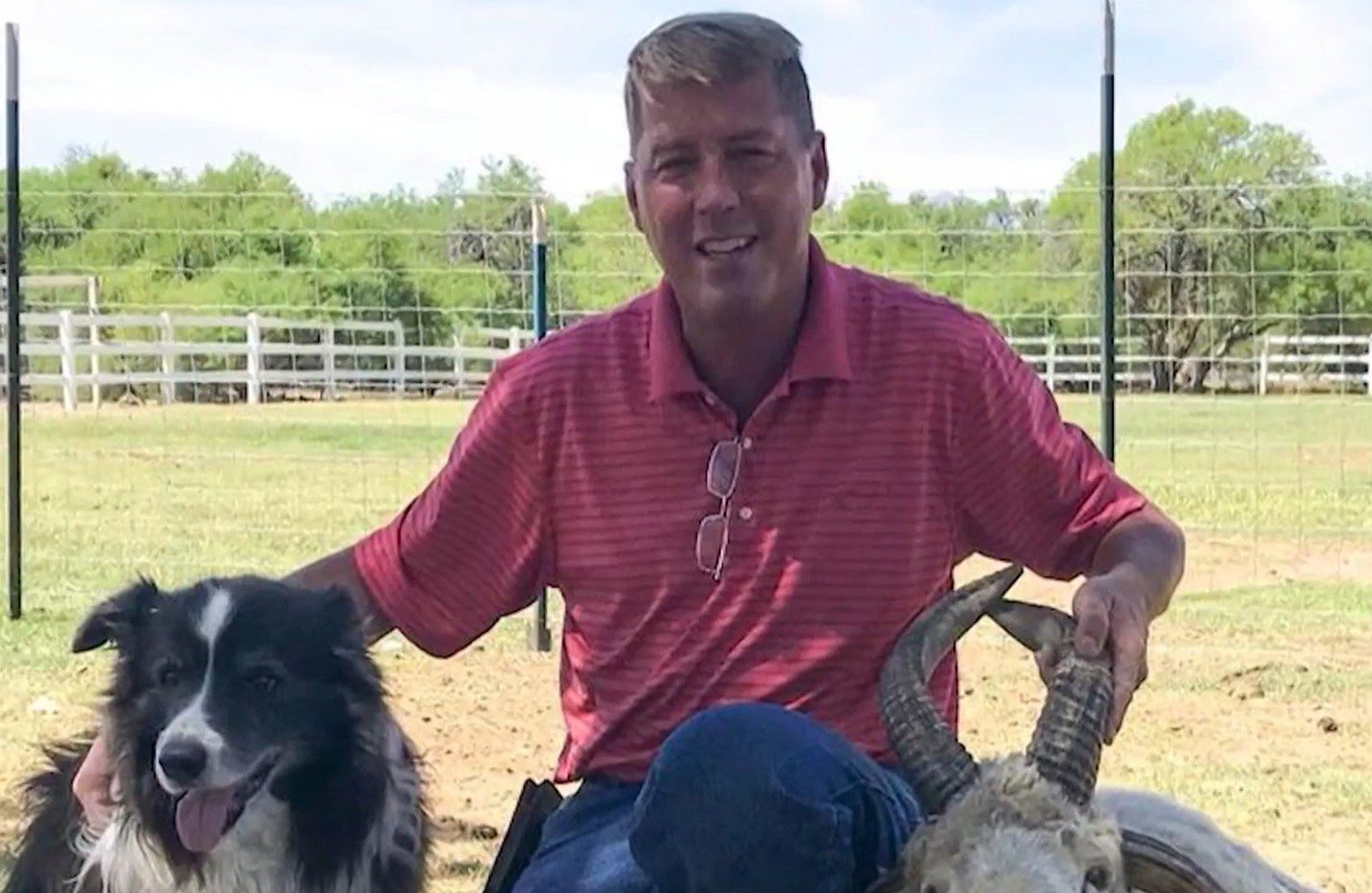So the New York Times released a bombshell report earlier after they had issued a FOIA request with the Federal Bureau of Prisons and obtained over 2,000 pages of reports from Jeffrey Epstein’s brief prison stay – 36 days to be exact. It was cut short when the disgraced billionaire was found dead in his cell from an apparent suicide.
Before he was found dead however, Epstein had a few sessions with prison psychologist which revealed his mental state at the time. Apparently he had attempted suicide in his cell previously, or at least appeared to. Here’s how the NY Times reports it…
The disgraced financier, jailed in Manhattan on federal sex trafficking charges involving teenage girls, was found unconscious on the floor of his cell one morning in July 2019, a strip of bedsheet tied around his bruised neck.
In the hours and days that followed that suicide attempt, Jeffrey Epstein would claim to be living a “wonderful life,” denying any thoughts of ending it, even as he sat on suicide watch and faced daunting legal troubles.
“I have no interest in killing myself,” Mr. Epstein told a jailhouse psychologist, according to Bureau of Prisons documents that have not previously been made public. He was a “coward” and did not like pain, he explained. “I would not do that to myself.”
But two weeks later, he did just that: He died in his cell on Aug. 10 in the Metropolitan Correctional Center, having hanged himself with a bedsheet, the medical examiner ruled.
The NY Times goes out of their way to NOT claim that Epstein did not kill himself, but see if you can read between the lines of the rest of the report. They cover a number of bizarre cock-ups by the prison itself and the guards…
The newly obtained records offer no support to the explosion of conspiracy theories that Mr. Epstein’s death was not a suicide. They also shed no light on questions raised by his brother and one of his lawyers that he might have been assisted in killing himself. But they do paint a picture of incompetence and sloppiness by some within the Bureau of Prisons, which runs the federal detention center.
An intake screening form erroneously described Mr. Epstein as a Black male (he was white), and indicated that he had no prior sex offense convictions, even though he was a registered sex offender with two 2008 convictions in Florida, for solicitation of prostitution and procurement of minors to engage in prostitution. A few social phone calls he made were not recorded, logged or monitored, records show, an apparent violation of jail policy.
The night he killed himself, Mr. Epstein lied to jail officials and said he wanted to phone his mother — who was long dead. He instead called his girlfriend. Jail personnel left him alone in his cell that night, despite an explicit directive that he be assigned a cellmate.
Two days after the suicide, William P. Barr, then the U.S. attorney general, said there were “serious irregularities” at the correctional center, but did not elaborate. He later blamed “a perfect storm of screw-ups.”
A 15-page psychological reconstruction of Mr. Epstein’s death, compiled by bureau officials five weeks later and never before made public, concluded that his identity “appeared to be based on his wealth, power and association with other high-profile individuals.”
“The lack of significant interpersonal connections, a complete loss of his status in both the community and among associates, and the idea of potentially spending his life in prison,” the post-mortem continued, “were likely factors contributing to Mr. Epstein’s suicide.”
Hmmm. The report continues…
The Times obtained the materials after suing the Bureau of Prisons, which had repeatedly rejected its public-records requests. As part of a settlement, the agency agreed to turn over internal memos and emails, visitor logs, handwritten notes from inmates, and the psychological reconstruction of Mr. Epstein’s death. Many of the documents were heavily redacted; some were withheld entirely, including a number of records associated with the earlier suicide attempt.
At a hearing in April regarding The Times’s lawsuit, Judge Paul A. Engelmayer of Federal District Court in Manhattan said he was “struck by the audacity of the initial denial by the Bureau of Prisons” to make the records available in a case that he described as a “high-profile epic failure.”
“It certainly does raise a concern,” the judge added, “that the wagons are being circled.”
The article goes on to explain how Epstein arrived at the prison via private jet (totally normal), and checked into his cell which was originally located in the least restrictive part of the prison. Prison officials claim there was no advance notice that Epstein would be arriving and they hadn’t set up anything specifically for him. According to them he was “treated like any other prisoner”. He could walk around and others were able to get to him.
That evening, according to the post-mortem reconstruction, a facilities assistant found Mr. Epstein in his cell looking “distraught, sad and a little confused,” she said in an email to three jail officials.
When the assistant asked if he was OK, he said he was. But she was not convinced, she wrote. “He seems dazed and withdrawn.”
She added, “Just to be on the safe side and prevent any suicidal thoughts, can someone from Psychology come and talk with him?”
No one did at first, according to the records.
On Sunday, July 7, the center’s warden, Lamine N’Diaye, properly identified Mr. Epstein as “high-profile” and had him moved to the Special Housing Unit, or S.H.U., on the ninth floor, out of “concerns for his personal safety in general population,” according to Mr. Hurwitz’s email.
He returned from his first court appearance looking an absolute mess, according to the report. Yet for some reason he still wasn’t considered a suicide risk. They instead placed him in special confinement where he would be monitored more, just not 24/7…
By the time Mr. Epstein returned, it was after normal business hours and he was moved to “psychological observation” — a less restrictive status than suicide watch — in which so-called inmate companions took shifts to monitor him in his cell and chronicled his actions every 15 minutes.
Mr. Epstein spent his nights pacing his cell, sleeping fitfully and talking with other inmates, according to handwritten notes taken by those observing him.
Often, the entries were mundane: “Epstein is drinking water at sink.” But some were more evocative, suggesting at once his grim predicament and his unrealistic expectations. “Epstein is sitting on the edge of the bed with his head in the palm of his hands,” one inmate wrote on July 29.
Now HERE’s the real kicker from the NY Times report…
On the morning of Tuesday, July 9, Mr. Epstein underwent the requested formal, in-person suicide risk evaluation. The psychologist, whose name was redacted from the documents, found Mr. Epstein to be polite, cooperative, organized, coherent and even showing a sense of humor.
“Epstein adamantly denied any suicidal ideation, intention or plan,” she wrote in her notes. He requested a phone call, a meeting with his lawyer, a shower and to brush his teeth.
Mr. Epstein described himself to her as a banker with a “big business” and said that “being alive is fun.” He denied having sexually abused anyone, and said he would have a renewed bail hearing the next week, where he believed he would be released.
“He was future-oriented,” the psychologist wrote.
She concluded that suicide watch was not warranted, but that “out of an abundance of caution” Mr. Epstein should remain on psychological observation.
So it sounds like Epstein genuinely believed he would soon be a free man, either because he genuinely believed he did nothing wrong or because of all the connections he had or all the times he had escaped the law previously. He was reminiscing on his incredible lifestyle and looking forward to more billionaire socialite experiences. A total narcissist and psychopath. But categorically not a suicidal one according to the psychologist.
The next day, Mr. Epstein asked “to be single-celled” but was told he could not be housed alone “for safety and security concerns.”
And the day after that, a psychologist wrote: “He was smirking and said, ‘Why would you ever think I would be suicidal? I am not suicidal and I would never be.’”
Interesting. He asked to be separated from other inmates (for his own safety) but was denied. Did the prison really treat him like he was any other prisoner? Epstein was later denied bail at another court hearing and perhaps began to realise he could actually be screwed. His mental state apparently deteriorated. But despite this, he repeatedly told prison psychologists that he would never kill himself.
In conversations with people from psychological services over the next week, Mr. Epstein repeatedly denied having suicidal thoughts. He smiled and cracked jokes. He told them he was Jewish, and suicide was against his religion.
This prompted another suicide risk assessment by a psychologist. Mr. Epstein again denied having suicidal thoughts. The psychologist was persuaded, according to the documents, writing that a suicide watch was not warranted.
“He stated he lives for and plans to finish this case and to go back to his normal life,” the psychologist wrote.
Among the documents obtained by the Times was an undated sign, on orange paper, that read, “MANDATORY ROUNDS MUST BE CONDUCTED EVERY 30 MINUTES ON EPSTEIN #76318-054 AS PER GOD!!!!”
The word “mandatory” was misspelled and underlined in pen, and a question mark was written in after it. The records offered no explanation of the sign, and bureau officials declined to answer questions about it. Why?

The last part of the article focuses on “Epstein’s Last Day”, featuring a massive red flag in the first sentence…
When he arrived back in the S.H.U. on July 30, Mr. Epstein was given a cellmate, Efrain Reyes, a prisoner who was assisting the government in a drug distribution conspiracy case. Mr. Epstein complained that the man’s talking kept him awake at night.
That all changed on Aug. 9, when Mr. Reyes was transferred out of the jail and the staff was alerted that Mr. Epstein would need a new cellmate.
Wait, what? Epstein is suddenly given a cellmate who just happens to be a government witness i.e. still a criminal but now working for the government to bring down bigger fish? Hmmm. The report continues…
That same day — the day before Mr. Epstein died — as he huddled with his lawyers in a conference room, a federal appeals court unsealed about 2,000 pages of previously confidential documents in a defamation lawsuit against Ghislaine Maxwell, his longtime associate and former girlfriend. Ms. Maxwell, who was charged last year with sex trafficking and other offenses, faces a trial this month in Manhattan.
The materials revealed highly disturbing details of Mr. Epstein’s alleged sex-trafficking ring, including graphic depositions, police reports and an Amazon receipt for books like “Training with Miss Abernathy: A Workbook for Erotic Slaves and Their Owners.”
Officials later surmised in the psychological reconstruction that the document release worsened his mental state, “further eroding his previously enjoyed elevated status and potentially implicating some of his associates.”
That evening, according to the reconstruction, a unit manager at the detention center helped Mr. Epstein make a “social” phone call. The manager dialed for Mr. Epstein and let him speak for 15 minutes. The call was not properly logged and does not appear to have been recorded. It is not clear from the documents whether the call was on a monitored line.
So they allowed Epstein to make an unlogged phone call from a personal line that wasn’t monitored? Seems normal…
“I asked inmate Epstein who he was calling,” the unit manager wrote. “He stated his mother.”
Mr. Epstein’s mother died in 2004. The call was to his 30-year-old girlfriend, Karyna Shuliak, whom he helped put through dental school, said three people with knowledge of the phone conversation. Mr. Epstein, they said, gave no indication during the call that he planned to kill himself.
Again, he gave no indication that he wanted to kill himself. But then…
After finishing the call, Mr. Epstein returned to his cell, where he was alone because no new cellmate had yet been assigned. He was also left unmonitored by two officers on duty, whom prosecutors later accused of spending their time surfing the internet and appearing to be asleep. (This May, the two officers entered into a deferred prosecution agreement on charges that they had falsified jail records about checking on Mr. Epstein.)
At 6:30 the next morning, he was found with a bedsheet tied around his neck like a noose. He was pronounced dead an hour later.
The article ends with the reporter mentioning an inmate who apparently told a kitchen worker at the prison that Epstein definitely killed himself…
He said the other inmate had told him: “Jeffrey Epstein definitely killed himself. Any conspiracy theories to the contrary are ridiculous.” The man had heard Mr. Epstein “tearing up his sheet before committing suicide,” the kitchen worker wrote.
There’s just too many coincidences and dodgy reports around the case to ever ascertain what happened for certain. Is it possible that Jeffrey Epstein killed himself, despite giving a very convincing impression that he never would? Of course. He may have just snapped on the night of his death or was simply that good at hiding his suicidal thoughts that not even a psychologist or his closest friends could pick up on it. Or… there’s some serious shenanigans at play here. I’ll let you decide.
For incredible footage of Jeffrey Epstein’s Paedophile Island, click HERE.















